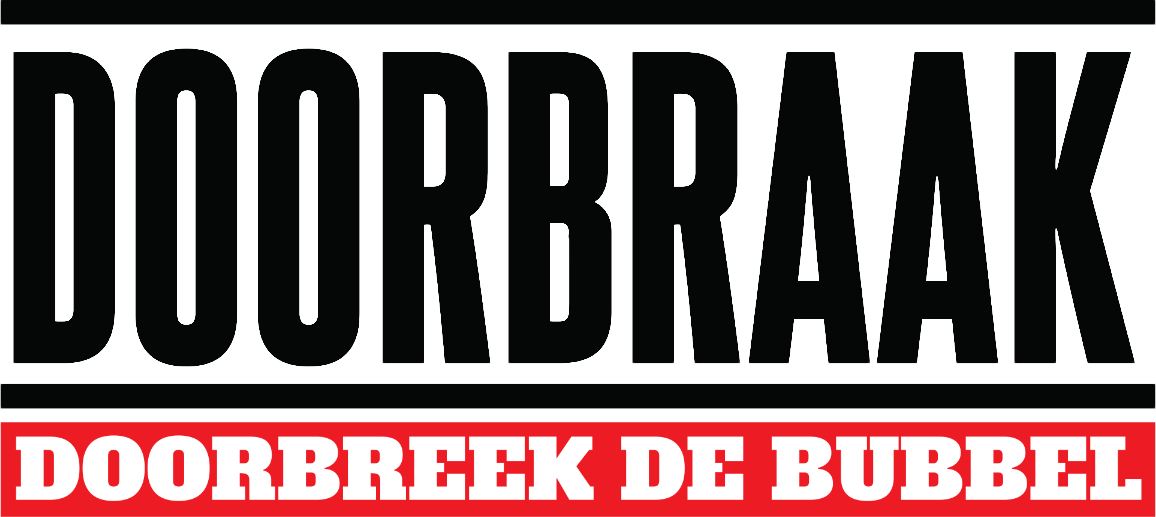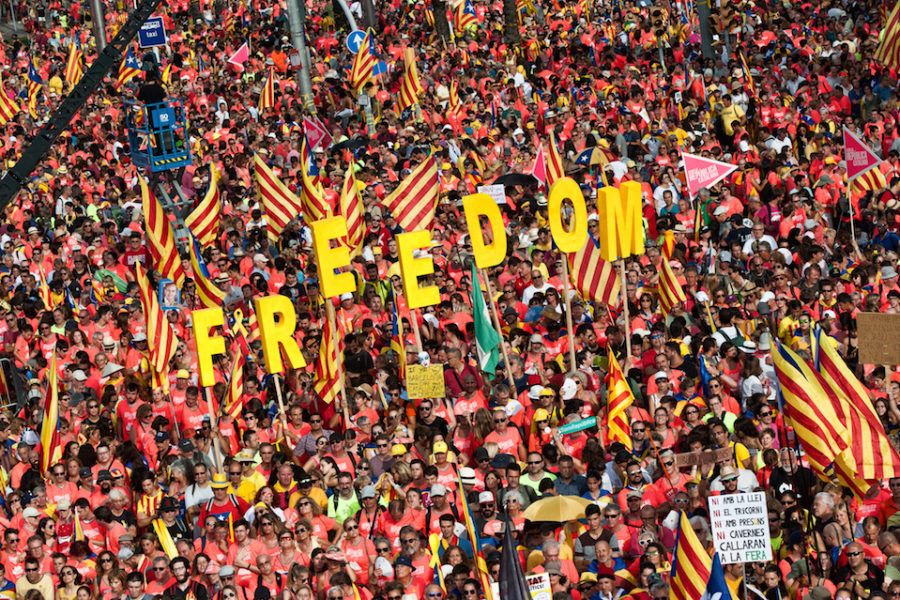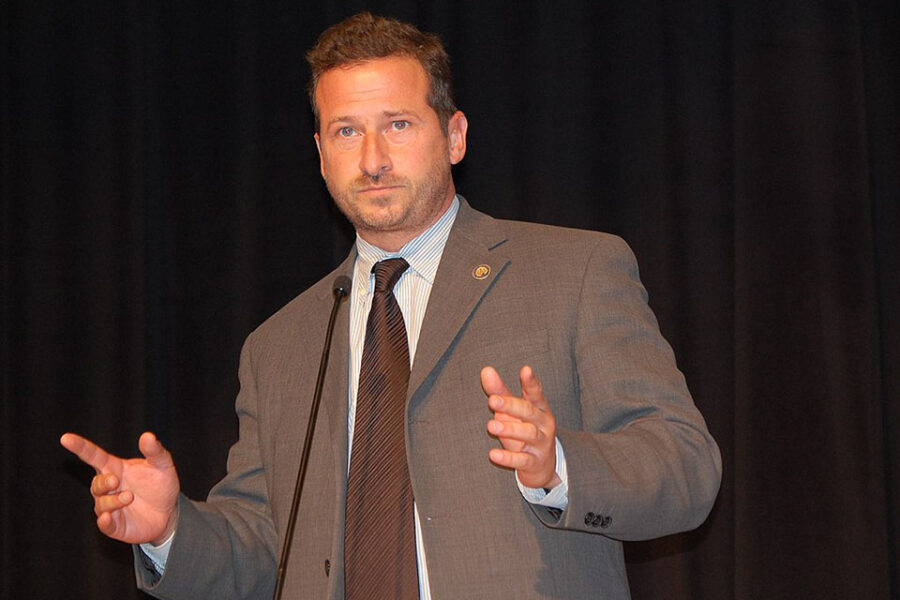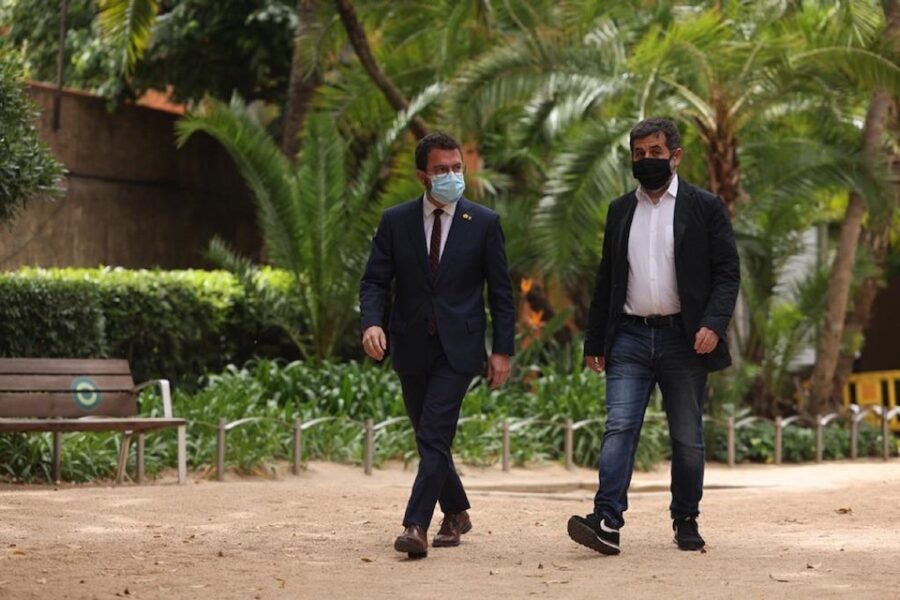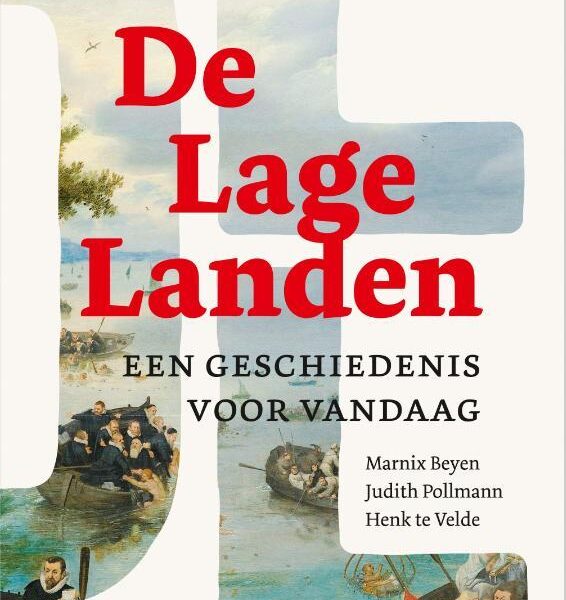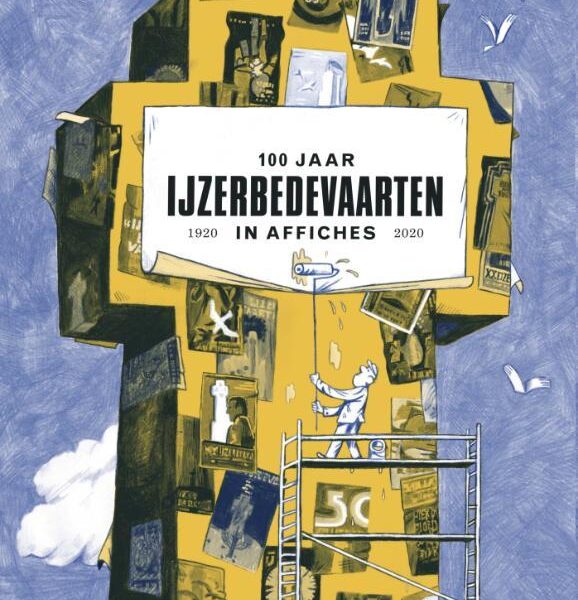Alfred Bosch: ‘You don’t solve the Catalan question with voting the budget’
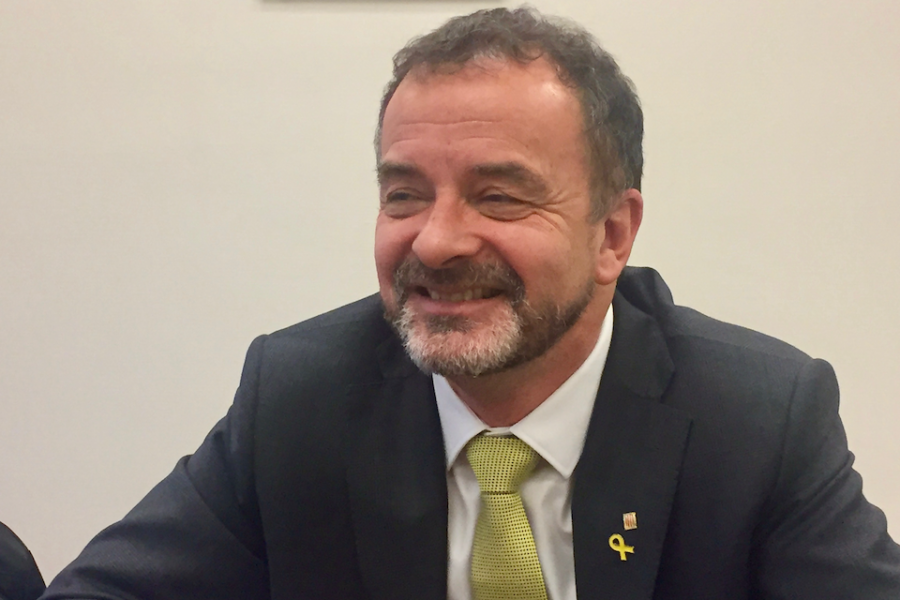
Alfred Bosch: ‘You don’t solve political issues by putting people in jail. You complicate these issues.’
foto © Doorbraak
Prime minister Sánchez never wanted a dialogue nor an approved budget, Alfred Bosch (ERC) says. Sánchez rather bows for the Spanish extreme right than working on a negotiated, democratic solution for Catalonia.
The left wing State Secretary of Catalonia, Alfred Bosch (ERC), was in Brussels on Thursday. He’s on a tour in Europe, explaining both the trial against the political prisoners in Madrid, and the Catalans’ quest for self determination. An interview.
There was a massive strike in Catalonia. Also, last Saturday about half a million Catalans manifested against the trial in Madrid.
‘It was the second most succesful strike in Catalonia. The most succesvol was on October 3rd, two days after the referendum.’
The independence movement has not lost too much of its strength?
‘The trial in Madrid has motivated people again. We see the powers of the state in action. We see people accused of setting up a vote, organizing a referendum and being charged up to 25 years in jail. That’s quite impressing. People find good reasons to protest.’
You just said people are motivated ‘again’. Does that mean people weren’t anymore beforehand?
‘We must admit that we had to retune our spirit after the crackdown. Crackdown on October 1, the voters, the police brutality. The crackdown on the Catalan government. Those who went into exile and those who went to prison, already for more than one year, without bail. So yes, there was like … many people felt stunned, are impressed by the extent of the repression.’
Also the last Diada was a great success: more than one million people on the Diagonalin Barcelona.
‘I’m not saying that anything disappeared or that we had a regression. I’m just saying that we had to find our new position. Sometimes that’s not easy. When you get punched in the face, you have to get up again and sometimes you feel dizzy. That doesn’t mean that any convictions have changed. I’m sure that what opinion polls say, that the amount of people in favour of independence increased. It’s not a question of a withdrawal.’
You had to find a new position…
‘We’re entering a new phase. The previous one was a very happy, colourful mobilization. Right now it has more to do with protest against injustice. When you see your main leaders in jail for such a long time accused of things they have not done, as being criminals.’
Does it mean the focus has changed from independence to the liberation of the political prisoners?
‘No. We’re obviously not changed. People have not changed their ideas. But it’s true that now we have much heavier arguments. Because we’re seeing the amount of pression and repression that Spanish powers of the state are capable of excerting. We’ve been seeing that for quite a few months now, so we’ve grown up. We’re more mature in that sence. We realise the power of the adversaries we have.’
Europe
Yet, if you say you have heavier arguments, it doesn’t seem other European countries are impressed by them.
‘That might take some time for natural reasons. No government works for the disruption of the establishment. So, yes, logically, they tend to support the establishment. But we see a clear evolution of peoples’ minds all over Europe and over the world. When you see like there’s this opinion poll done by the institute Elcano, which is not like a pro independence think tank, it’s a Spanish government think tank headed by the king of Spain, it’s not suspicious, You see this poll they did in several European countries where they detect a sustained growth in the support of self determination in Catalonia and even for independence as an option. In very few years, according to this institute, there’s been a steady increase and positive attitude towards Catalonia. So the public opinion in Europe and the world is changing. The media are changing. We’re detecting an interest now which was not existing two, three years ago. We also see that positions are much better informed, much more balanced, and they know Catalan situation much better. They are able to understand Catalonia much better why there are so many Catalans who ask respect for their vote for independence.’
Do you expect the change in public opinion might reinforce pression on Spanish government?
‘Eventually that will happen, because that’s how democracies work. A shift in public opinion – if it’s consistent – ends up by influencing whatever government wants to be in office. So we hope for it and we expect it.
You’ve just started a tour in European capitals to inform people and governments on the Catalan crisis. Are you also spreading the word outside the EU?
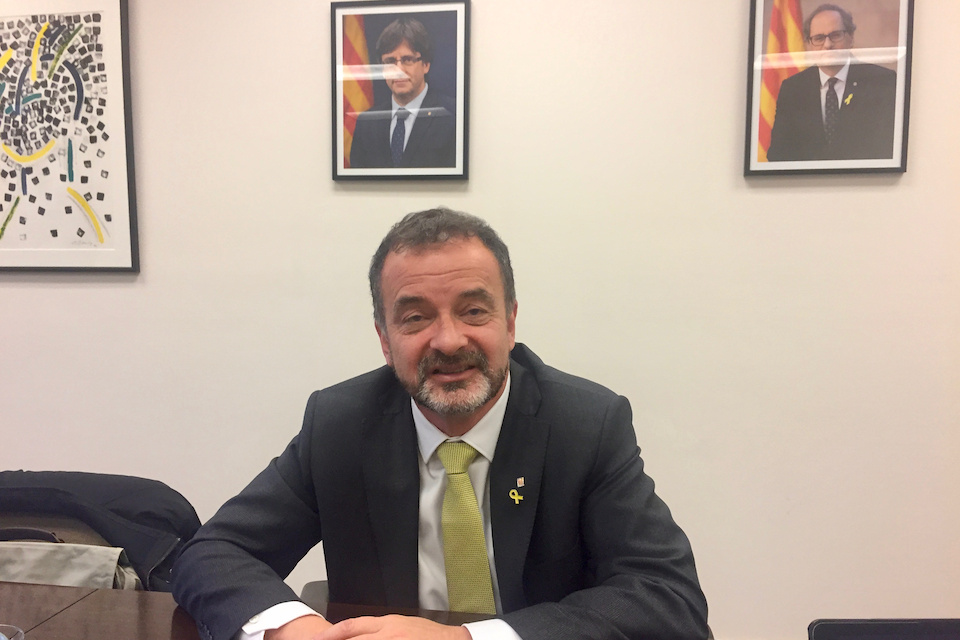 Doorbraak
DoorbraakAlfred Bosch, watched over by two presidents.Carles Puigdemont (l) en Quim Torra (r).
‘We started in Europe obviously, we are European. We want to remain European. We want to visit seven capitals. Once we’ve completed this, we’re going to visit other places in the world.’
And you’re welcome? Also by first ministers or state secretaries?
‘No, governemnts don’t want the Spanish government to complain to them. Governments tend to be more conservative in this. But we’re very much welcomed by think tanks, peace foundations, civil rights organisations, political parties. It’s bizar you sometimes get very clear statements from politicians who’re not in office, whereas their colleagues of the same parties who are in government say different things. That reflects what I believe is happening, that there’s a major shift in public opinion. We’ll try to encourage that. I’m sure that it will end up to have an impact on politics and governments as well.’
Do you speak to the EU itself, Commission, Council?
‘Of course we are. We’re speaking to the EU, to Commissioners. But I respect the privacy which they’ve expected from me.’
But there are talks with Europen institutions then? With Puigdemont in exile, it was his purpose too to talk to the European officials, which didn’t seem to be very succesfull. Is there any interest on Europan level of what’s happening in Spain. Juncker or Tusk…
‘I don’t know. There is a lot of interest. Wherever you go, you suggest interviews to the media, and they’re interested.’
But I mean the European institutions, not the press.
‘Right now they insist on private meetings, confidential. I understand. They want to wait and see how this evolves.’
Budget nor dialogue
You’re state secretary for ERC. Two weeks ago not voting for prime minister Sanchez’ public funding made him draw new elections. Was that a good idea? Shouldn’t you have voted for his budget and continue the Dialogue between Spain and Catalonia? After the election, a right wing government might implement article 155 again.
‘First, we voted for Mr. Sanchez and kicked out Mr. Rajoy. We supported him in order to become prime minister of Spain. Without our votes, votes of the pro independence parties, he would not be there. So we díd give him a chance. Why? Among other things because of corruption, because of we are left wing and he is left wing and we believe in social progress. And also and significantally because he came with promises of dialogue and of reaching a democratic solution through conversations. Now, few months after that, we managed to bring him to the table. The first meeting we reached a joint statement, which is published, which said that we need to find a democratic solution to the problem. Now, just a few weeks after that, when we were asking for proposals … We had our own proposals. We want a referendum which is agreed, which is recognized, obiviously legal, like the had in Scotland for instance. Now, they didn’t bring any offer, they didn’t made any proposal…
Obviously we expected their proposal to be different from ours. Naturally. But the problem is, we didn’t have any from their side. The only we got from their side was “vote the budget, vote the budget, vote the budget”. Now, we’re ready to talk about everything. And everything means including the budget. What we don’t see is anything being excluded from talks, especially the central theme. And that is exactly what they did. Because the Spanish government came out and said these people who are in favour of independence are now demanding that we accept a democratic solution to be on the table. When we had agreed on that a few weeks before, en we issued a joint statement. Now, that’s what I call go back and retreating on your own steps. Despite that, we wanted to continue the talks to maybe create the climate whereby the budget can be discussed and everything can be discussed. Because you don’t solve the Catalan question with voting the budget. The day after that, you’d be in exactly the same situation. So we asked let’s continue talking, but what they did was get up and leave the table. On the pretext that we were demanding a democratic solution, which they had signed a few weeks before.
So, what we believe is they were looking for a pretext. That Mr. Sanchez had decided he wanted to call for election. And I think he’s an intelligent fellow. And when he had other options, clearly, it is because he thought it would work in his convenience. So don’t blame on us that Mr Sanchez takes a solution. He’s not a stupid politician.’
So you think he could say to the Spanish electorate he didn’t bow for Catalan independentists?
‘For instance. That could be his narrative. Saying there was no consession. I’m for a united Spain. I didn’t bow for those people. And at the same time saying it was their fault because they didn’t vote for the budget.’
‘Look, we just wanted to go on with the talks. We didn’t want anyone to get up and leave. We had started on the path of negociations, saying we agree on a democratic solution. Maybe they understand something else under a democratic solution. Most probably…’
So it wasn’t PDeCat (centre-right) and ERC (republican left) who left the negotations table and dialogue?
‘What for?’
Indeed, why would you do that if article 155 and losing your autonomy would be the risk.
‘We’re democrats. We want to vote always, everywere, any time. And we want to vote for the future. Obviously. That’s what we’re asking for. So we’re not scared of elections. Now, Mr Sanchez thinks he can win. He could have done other things. He could have renew the budget like last year. Which is something that has been done hundreds of times. He could have proceeded the talks and created a climate in which we would have backed him with a budget. For goodness sake. We backed him to become prime minister! Why wouldn’t we do it? If he corresponds to our effort and willing to talk then probably that would lead us somewhere else. But clearly he wanted to call new elections. He’s intelligent. He must have had his reasons.’
Opinion polls you don’t know of?
‘Perhaps. I don’t know what’s in Mr Sanchez’ head. But I do know he has a powerful head. He will just bow down and say: I choose the worse option because those guys forced me to do that. When it’s obvious he had other possibilities? Why did he do it? You ask him. I just understand that he did this to his political convenience, which is what a politician usually does.’
Extreme right
What about post-electoral prospects?
‘We have very black prospects ahead. But then again, don’t blame it on us. Please. We set up a referendum. The voters were there and they were bashed on, hit on, struck on their heads by the police sent by the Spanish government. After that we had our leaders detained. Some had to leave in exile. Those who’re detained have been for more than a year without bail, and now they’re facing charges of up to 25 years for holding a vote, for organizing a referendum. On top of that, saying that we’re to blame for the rise of Spanish nationalism and extreme right, come on! That’s like blaming the immigrants asking for their rights for the rise of the extreme right. Now, when people go out in Madrid in a demonstration where banners say “no to dialogue”, with even quite a few blokes raising their arms in the fascist salute and asking for Catalan bashing … When that happens, are we the ones to blame? We want dialogue. We want people to vote. We don’t want intolerance. We’re the main opponents of these intolerant, populist, demagogic people who say Catalans don’t have the right to decide, who say immigrants should be expelled massively, who say we should scale down on women’s rights, who say animals have no rights and violence with bull fighting is a very plausible thing, who say we don’t want to co-operate with the world and let’s strike down any aid or any co-operation with Third World countries. When you have that kind of fellows in front, why should Mr Sanchez bow down to those pressures? Why shouldn’t Sánchez get an understanding with us? With a ballot box and not with bullets. You have people who’re acting in a very hostile manner to any differences in society. We ask him to be brave and strike a deal with democrats, not follow the course of the extreme right. Because that would lead to more conflict and more problems. It’s the same thing with the trials. It’s not intelligent. These trials are political trials. You don’t solve political issues by putting people in jail. You complicate these issues. Despite the fact this doesn’t obey to 21stcentury Europe democracy. It belongs to the past.’
Elections
How are you – as ERC – facing the European elections? You’re about to form a left wing group with the Basque EH Bildu, the Galician BNG?
‘We’re talking to all these people.’
You’re not talking to PDeCat or independent catalanists to go the European ballot box?
‘We’re talking to everyone. But the chances are that we will choose to be in Europe with those who’re close to us, as we have always done. But we’re still talking about it.’
And general elections, on April 28? Are you forming one independentist group or not?
‘Always we will get this call not for unity. That would mean people from PDeCat – or whatever it’s called, people from (radical left) CUP and possibly other groups… What they talk about is not unity but a fusion between the heirs of Convergencia (CDC) and Esquerra. That’s a coalition. We have a coalition in Catalan government now, but we have it after the electoral results, which is much easier.’
But if you’d go jointed to the elections, you’d have more votes?
‘No, that doesn’t mean we get more MP’s. Up to now we’ve seen that for instance when we created Junts pel Sí – which is a pre-election coalition – we had less seats than we had before separately. And less seats then we had afterwards separately. We tend to think that going separately enables us to reach more people. Because we cater for the left, and they cater for the centre right. We believe it makes us widen our scope and reach more people and get more votes. So in the end what counts is the sum of forces you have in Catalan or Spanish parliament.’
Republic
You’re a member of the Catalan government. In Waterloo there’s a government in exile. And there is a Consell de la Republica. How do they all relate to each other?
‘The policy of the government is set by the government like in any other place and we have our own administration. But given the fact that there’s a part of the government in exile, and very significantly the president, we realise that we have to join forces and efforts. Because of what Mr Puigemont represents is of extreme value to us. He can attract a lot of attention. He can do a lot of work in Brussels, the heart of the European Union. And he can also influence opinion. So it wouldn’t be intelligent to forget about the people in exile. We don’t want to do that. For ethical reasons and also because of very practical reasons. The people in exile can really help in diffusion and promotion of a very noble cause.’
Which is a reason for the Republican Council.
‘Indeed, that’s the main reason. The idea is let’s not forget about those in exile. But also let’s encourage them and help them as far as possible to do an international effort which we need very much. There’s so much work to do, as you were saying before. So much work ahead! That we’re not going to forget about people who really assist in this effort. And we think about the prisoners, the accused who right now are helping us to internationalize and to promote our cause, which is a democratic cause, when we’re being subject to such repression in many fronts.’
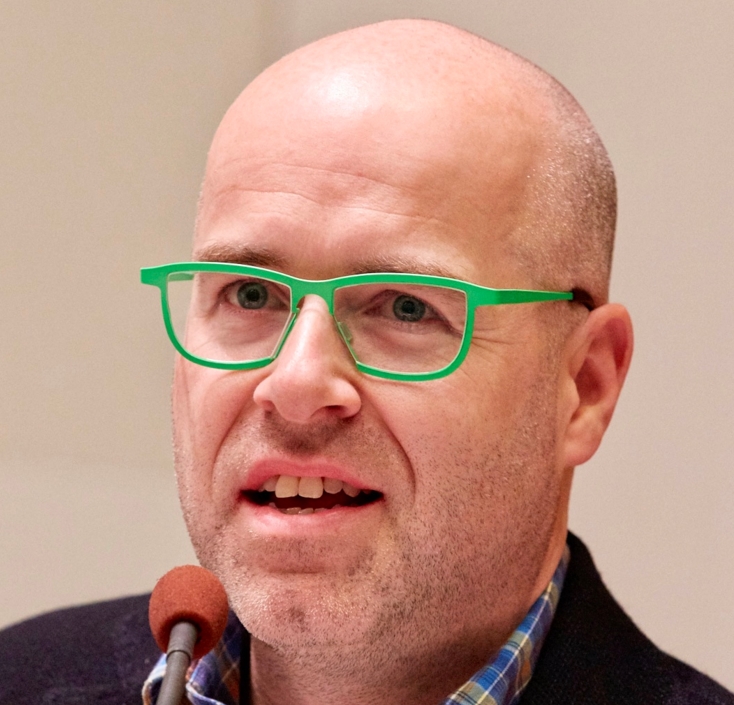
Karl Drabbe is uitgever van ERTSBERG. Hij is historicus en wereldreiziger en werkt al sinds 1993 mee aan Doorbraak.
Naar goede traditie vindt vandaag voor de tiende keer een grote manifestatie voor meer autonomie plaats in Catalonië. Wat zal de impact zijn?
